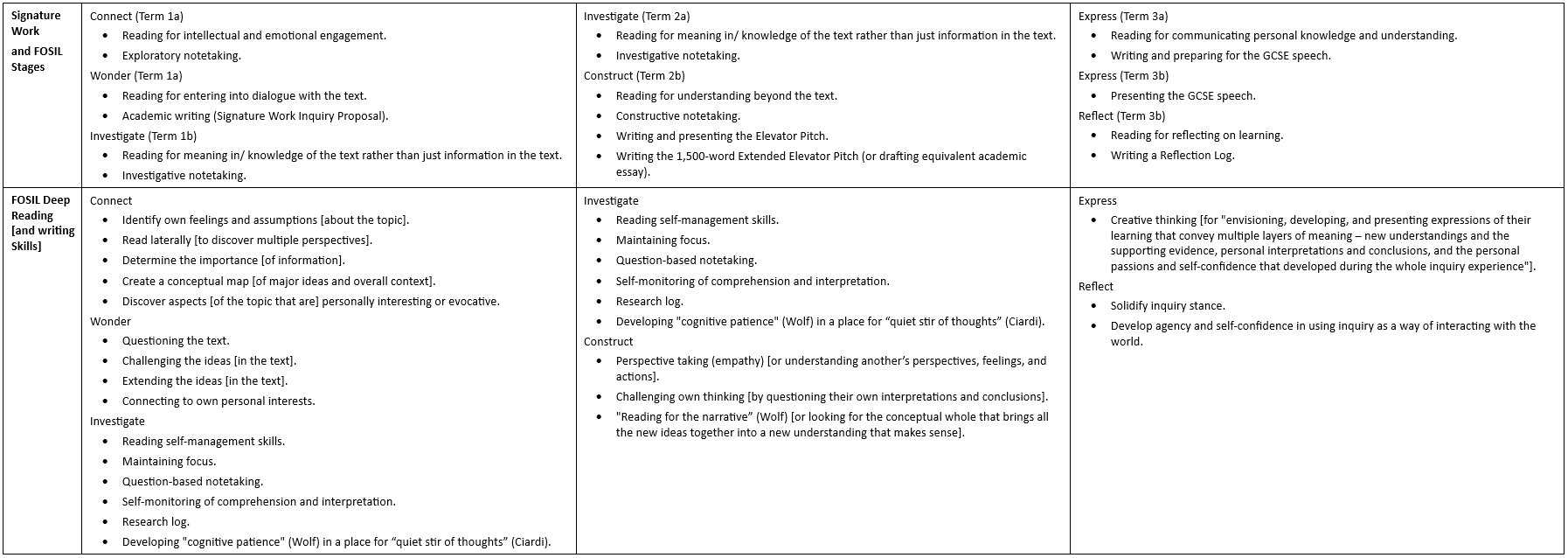There is much that I need to update on, which I will do in due course. Of particular interest now, though, is the opportunity to look ahead to the next academic year, which starts in September 2023.
I have been re-working my way through Action, Talk, and Text: Learning and Teaching Through Inquiry (Wells, 2001)* ahead of a whole-staff INSET on Tuesday 30 May on lessons that we have learned from the Year 6 (Grade 5), Year 9 (Grade 8) and Year 12 (Grade 11) Signature Work inquiries that have broader application (which we will share when done).
What I had not fully appreciated before, was the significance of action, talk and text to learning and teaching through inquiry, or the relationship between them. The request, then, at this time to add a Year 9 (Grade 8) Signature Work strand to the 2023-4 English Key Stage 3 (Years 7-9/ Grades 6-8) Overview – see Effecting Change Through Policy for some background – has uncovered some of this significance for me. While this work is still unfolding, and will require further reflection, I share the Year 9 (Grade 8) Signature Work strand below, which is essentially complete. Given the vital role of reading and writing in learning, and especially in an inquiry-based approach to learning, I have emphasized this in the overview and will return to it later.
Please note that I have only added the top row – Signature Work and FOSIL Stages – to the Overview. I have added the second row – FOSIL Deep Reading [and writing] Skills – here because I am still thinking through this with reference to Reading for Inquiry Learning in the Forum, and specifically Barbara‘s reflections on deep reading from this post onwards. Click on image below to enlarge or download as PNG.

I will update further as soon as time permits.
*This book reflects on 10 years of action research carried out by DICEP (the Developing Inquiry Communities in Education Project), which was initiated by the Ontario Institute for Studies in Education (OISE) of the University of Toronto. This collaboration between teacher educators from OISE and teachers in metro Toronto and surrounding areas – initially on “a study of ‘Learning through Talk’ in elementary science classrooms” – grew in focus “to include opportunities for inquiry-based learning and teaching at all levels and in all areas of the curriculum” (p.2).